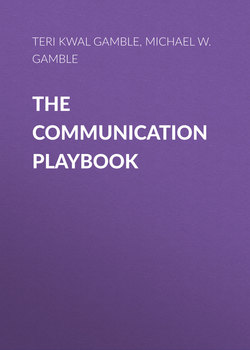Читать книгу The Communication Playbook - Teri Kwal Gamble - Страница 194
На сайте Литреса книга снята с продажи.
The Sapir–Whorf Hypothesis
ОглавлениеThe world we experience helps shape the language we speak, and the language we speak helps sustain our perception of reality and our view of our world. According to the Sapir–Whorf hypothesis, people from different cultures perceive stimuli and communicate differently, at least in part, because of their language differences. The Sapir–Whorf hypothesis has two threads: linguistic determinism and linguistic relativity. Linguistic determinism suggests that language determines our range of cognitive processes, effectually limiting how we see things by impeding us from seeing them any other way. Linguistic determinism has largely been discounted. Linguistic relativity suggests that languages divide up and name the world differently; it posits that since language affects thought, people who speak different languages will perceive the world differently. This helps to explain why the Inuit have many words for snow while Arabs use a single word only.
Benjamin Whorf claimed that if a language had no word for a concept, then speakers of the language would be unable to understand the concept. On the other hand, not having a word for something doesn’t mean we can’t have the experience. Thus, language may not limit ways of thinking as much as Whorf claimed.
Whorf never put forth hard evidence to support his claims, so over time his views have lost favor. Newer research on the subject reveals that as we learn our mother tongue, we acquire certain habits of thought that help shape our experience. For example, suppose someone told you, “I spent yesterday afternoon with my friend.” If the person were speaking French or Spanish, he or she also would inform you about the friend’s gender, as those languages have separate words for a male friend and a female friend. In contrast, an English speaker’s words would not necessarily reveal that information.
Similarly, because Chinese speakers can use the same verb to refer to action in the past and present, they do not have to reveal the nature of the time they spent with their friend. English verbs require us to state that. Because we learn these options very early in life, they become habits of mind. Such habits influence our thoughts, feelings, and the way we look at things.33
